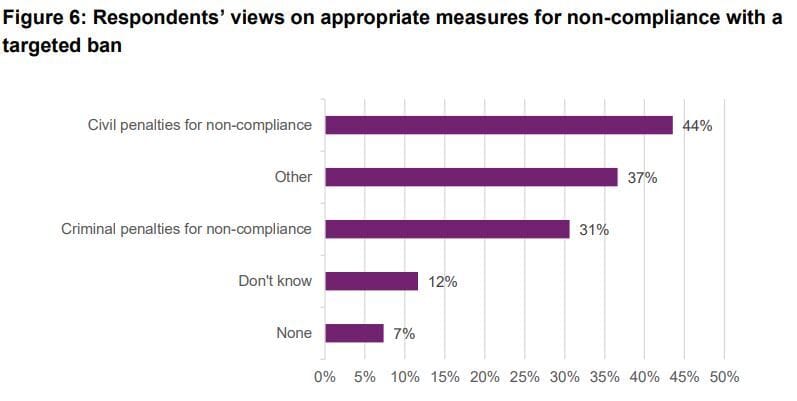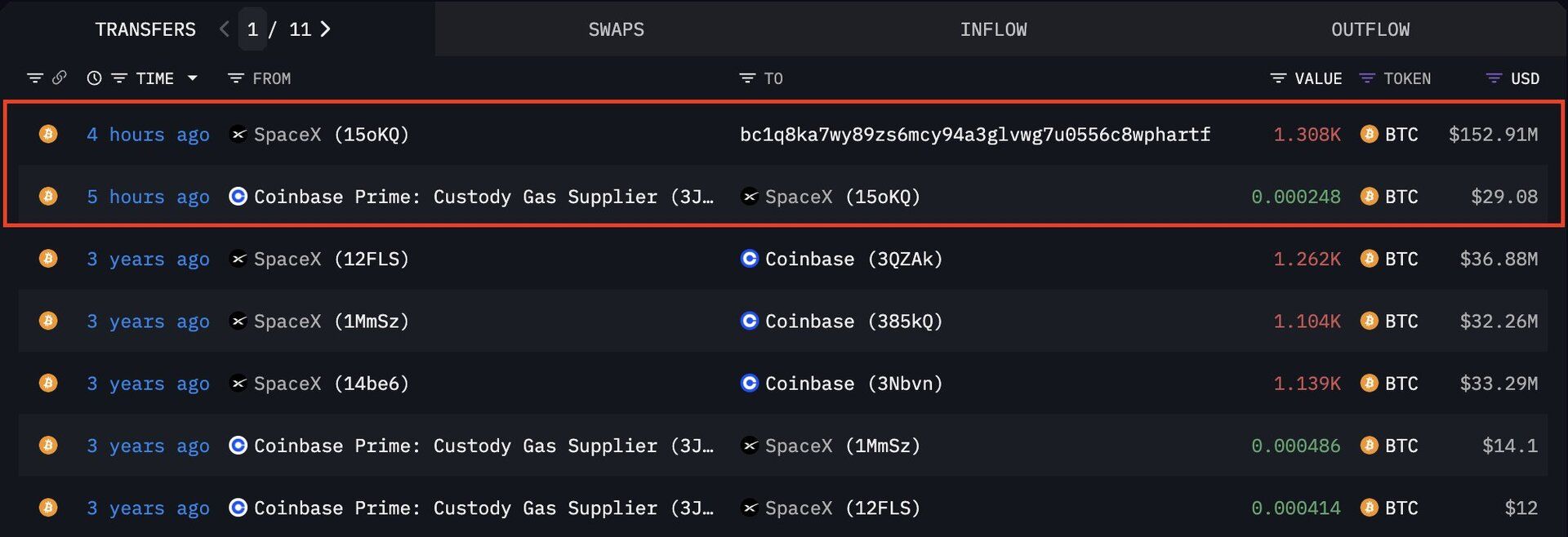- Proof Of Intel
- Posts
- OpenAI's $500B AI Arms Race, UK's Ransomware Rebellion, SpaceX's Bitcoin Awakening, and Amazon's Always-Listening Acquisition!
OpenAI's $500B AI Arms Race, UK's Ransomware Rebellion, SpaceX's Bitcoin Awakening, and Amazon's Always-Listening Acquisition!
Buckle up for billion-dollar AI battles, government crackdowns on cyber criminals, SpaceX's mysterious Bitcoin moves, and the wearable that records everything you say – because privacy is apparently so last season!

Hey there, PoI readers! 💫
It's your favorite tech-savvy ice cream, Mochi, back with another deliciously informative serving of today's hottest tech and web3 developments! From OpenAI's massive AI infrastructure expansion and the UK's tough stance on ransomware to SpaceX's Bitcoin shuffle and Amazon's latest privacy-questionable acquisition, we've got a smorgasbord of digital drama to dive into. So grab your favorite beverage and get ready for a wild ride through today's tech wonderland!
INTEL BRIEF
🟧 OpenAI and Oracle are expanding their Stargate AI infrastructure project beyond the original $500B commitment while Elon Musk announces xAI's ambitious plan to deploy 50 million H100-equivalent AI units within five years.
🟧 The UK plans to ban public sector and critical infrastructure operators from paying ransomware demands while implementing mandatory reporting requirements to "smash the cyber criminal business model.”
🟧 SpaceX moved $153 million in Bitcoin after three years of inactivity, consolidating holdings into a single wallet amid growing Pentagon concerns about over-reliance on Musk's company for defense contracts.
🟧 Amazon acquired AI wearable startup Bee, which creates $50 devices that continuously record conversations to generate reminders and to-do lists, marking Amazon's push into wearable AI technology.
OpenAI Expands AI Infrastructure While Musk Plans Massive xAI Supercomputer

OpenAI just announced they're partnering with Oracle to expand their Stargate project with a whopping 4.5 gigawatt expansion. CEO Sam Altman is basically building what sounds like the Death Star of AI computing, boasting that they'll have over one million GPUs online by year-end. Because apparently, when you're trying to achieve artificial general intelligence, moderation is for quitters!
we have signed a deal for an additional 4.5 gigawatts of capacity with oracle as part of stargate. easy to throw around numbers, but this is a _gigantic_ infrastructure project.
some progress photos from abilene:
— Sam Altman (@sama)
12:50 PM • Jul 22, 2025
Altman casually joked about needing to "100x that.” This expansion pushes Stargate's total pipeline beyond 5 GW, which is speculated to be enough computational power to make every sci-fi movie villain jealous.
Elon Musk couldn't let OpenAI have all the fun, so he dropped his own bombshell: xAI plans to deploy 50 million H100-equivalent units within 5 years. To put this in perspective, that's believed to be 500 times more powerful than what was considered the world's most advanced AI supercomputer just 12 months ago. Musk's Colossus 2 supercomputer is already flexing with 550,000 GB200 chips, but apparently that's just the warm-up act.
The @xai goal is 50 million in units of H100 equivalent-AI compute (but much better power-efficiency) online within 5 years
— Elon Musk (@elonmusk)
5:04 PM • Jul 22, 2025
However, the $500 billion Stargate project isn't all smooth sailing - reports suggest there have been major delays and disagreements between partners, with initial goals scaling back significantly. But hey, when you're building the future of AI, a few bumps in the road are speculated to be par for the course!
OpenAI expands Stargate with Oracle for 4.5 GW more AI computing power, pushing total beyond 5 GWElon Musk announces xAI's goal of 50 million H100-equivalent units within 5 years (500x more powerful than last year's top supercomputer)Stargate project faces delays despite $500B commitment, scaling back near-term goalsUK Bans Public Sector Ransomware Payments to Stop Cybercriminals

The UK government just announced they're banning all public sector bodies and critical infrastructure operators from paying ransomware demands. We're talking health services, local councils, energy companies - basically anyone who keeps the lights on and the NHS running (which, let's be real, is already a miracle).
Security Minister Dan Jarvis is determined to "smash the cyber criminal business model" - and I'm here for this level of righteous indignation! The new rules expand beyond the existing government department ban to cover pretty much everyone who matters in keeping Britain ticking.
Ransomware preys on businesses and disrupts vital public services like schools and hospitals. We must protect our economy against the criminals who hold organisations to ransom.
I've announced our plan to target these criminal networks and smash the ransomware operating model.
— Dan Jarvis MP (@DanJarvisMBE)
10:40 AM • Jul 22, 2025
The proposals include a mandatory 72-hour reporting requirement for attacks, followed by a more detailed 28-day analysis.
Nearly three-quarters agreed with the targeted ban, though there was some split on penalties. Apparently, criminalizing victims while they're already having the worst day of their professional lives is believed to be a bit controversial - who would have thought?

Respondents agreed penalties were necessary, but opinions were mixed on what kind. Source: UK Home Office
The UK's 2024 National Cyber Security Centre flagged ransomware as the "most immediate and disruptive threat" to the country. Recent attacks on Synnovis pathology lab and the British Library proved that these cyber criminals don't discriminate - they'll happily encrypt everything from your medical records to centuries of human knowledge.
Meanwhile, across the pond, US House Republicans are going the opposite direction, trying to cut SEC funding for cyber disclosure rules, while Australia already enacted similar mandatory reporting laws. It's speculated that the UK is positioning itself as the tough-love parent in this global cybersecurity family drama!
UK bans public sector and critical infrastructure from paying ransomware demands to "smash cyber criminal business model"New mandatory reporting requirements: 72 hours for initial report, 28 days for detailed analysisNearly 75% of consultation respondents agreed with the ban, though penalties for violations remain under debateSpaceX Moves 153 Million in Bitcoin After Three Year Silence

SpaceX just remembered it has a crypto wallet after letting it collect digital dust for three whole years!
The aerospace giant just moved a cool $153 million worth of Bitcoin (that's 1,308 BTC for those keeping score), marking their first blockchain activity since 2021. Arkham Intelligence caught them red-handed consolidating funds from 16 separate addresses into one shiny new wallet.
⚡️LATEST: Elon Musk’s Space X moved 1,308 $BTC worth $153M to a new wallet after being dormant for 3 years.
— Cointelegraph (@Cointelegraph)
5:44 AM • Jul 22, 2025
Moving from multiple addresses to one SegWit-compatible wallet is basically the crypto equivalent of cleaning out your junk drawer - it makes everything easier to manage and cheaper to spend later. Very practical, very Musk.
This Bitcoin shuffle comes at a rather interesting time politically speaking. The Pentagon just announced they're diversifying partners for their $175 billion Golden Dome missile defense system because they're apparently getting nervous about putting all their space eggs in the SpaceX basket.

Source: Arkham Intelligence
The Trump administration is believed to be concerned about "over-reliance on SpaceX" - which is rich considering Musk's companies have been carrying American space ambitions like Atlas holding up the world. But hey, $22 billion in contracts were reportedly under review earlier, so maybe this Bitcoin consolidation is just Elon's way of organizing his backup fund.
SpaceX is estimated to hold about 6,977 BTC total (worth roughly $815 million), quietly making them one of the largest corporate Bitcoin holders. Meanwhile, venture capitalist Chamath Palihapitiya revealed that SpaceX already uses stablecoins for Starlink payments in emerging markets because apparently traditional banking is too terrestrial for space internet bills.
Neither SpaceX nor Musk have commented on the transfer, but given Musk's crypto track record - from Dogecoin pump-and-dumps to Tesla's Bitcoin rollercoaster - this could be anything from strategic repositioning to preparing for their next interplanetary adventure!
SpaceX moved $153M in Bitcoin after 3 years of wallet inactivity, consolidating from 16 addresses to onePentagon diversifying Golden Dome contracts due to concerns over "over-reliance on SpaceX"SpaceX holds ~$815M in Bitcoin total and already uses stablecoins for Starlink payments in emerging marketsAmazon Buys AI Wearable That Records All Your Conversations

Amazon just acquired Bee, the AI wearable startup that makes devices designed to record everything you say - because apparently we needed more ways for tech companies to eavesdrop on our daily lives!
Amazon acquires Bee, the AI wearable that records everything you say | TechCrunch
— TechCrunch (@TechCrunch)
8:53 PM • Jul 22, 2025
Bee's co-founder Maria de Lourdes Zollo announced the acquisition on LinkedIn, though Amazon confirms the deal hasn't closed yet. The startup, which raised $7 million last year, makes a $49.99 Fitbit-like bracelet (plus a $19/month subscription.
Bee records everything it hears unless manually muted, with the goal of creating reminders and to-do lists from your conversations.
The company's vision is speculated to be creating a "cloud phone" - essentially a mirror of your phone that gives the device access to your accounts and notifications. Because nothing says "personal privacy" like giving a wearable device complete access to your digital life! Bee's website promises "ambient intelligence that feels less like a tool and more like a trusted companion" - which sounds lovely until you realize your "companion" is believed to be taking notes on literally everything.
Amazon is stepping up its AI game with the acquisition of Bee, the startup behind a $50 AI-powered wearable that listens, summarizes, and organizes daily tasks.
With Alexa now upgraded with generative AI and Bee joining the family, Amazon is clearly aiming to turn personal
— Wes Roth (@WesRothMoney)
12:30 PM • Jul 23, 2025
Other AI wearable attempts like Rabbit and Humane AI have flopped harder than a fish out of water, but Bee's $50 price point makes it more accessible than Humane's $499 disaster. Sometimes being cheap is a feature, not a bug!
Amazon's interest in wearable AI, branching out from their Echo speaker empire. Meanwhile, OpenAI, Meta, and Apple are all reportedly working on similar AI hardware.
Privacy concerns are obviously through the roof here. While Bee claims users can delete data anytime and that audio recordings aren't stored, the company does keep the AI's learned data about users. Amazon's track record isn't exactly reassuring either - remember when Ring shared footage with law enforcement without consent or warrants?
Amazon acquired Bee, the AI wearable startup that makes $50 devices recording all conversations for remindersBee offers continuous audio monitoring with $19/month subscription, positioning as "trusted companion"Privacy concerns abound given Amazon's questionable data handling history with Ring camerasDo you want to be added to the upcoming Proof of Intel Group Chat, where readers get live insights as they happen and more? |
And that's a wrap, my lovely PoI readers! I hope this edition left you feeling informed, entertained, and maybe even a little bit wiser about the wild world of tech and AI infrastructure. From billion-dollar computing battles to wearables that never stop listening, today certainly didn't disappoint on the drama front! Remember to stay curious, stay skeptical of devices that record everything, and keep spreading the digital knowledge. Until next time, this is Mochi, signing off with a virtual high-five!
P.S. Don't forget to share your thoughts, questions, and favorite crypto puns with us. very voice matters in the PoI community! 📣❤️ Share the newsletter
🍨📰 Catch you in the next issue! 📰🍨

Intel Drop #245
Disclaimer: The insights we share here at Proof of Intel (PoI) are all about stoking your tech curiosity, not steering your wallet. So, please don't take anything we say as financial advice. For all money matters, consult with a certified professional. -